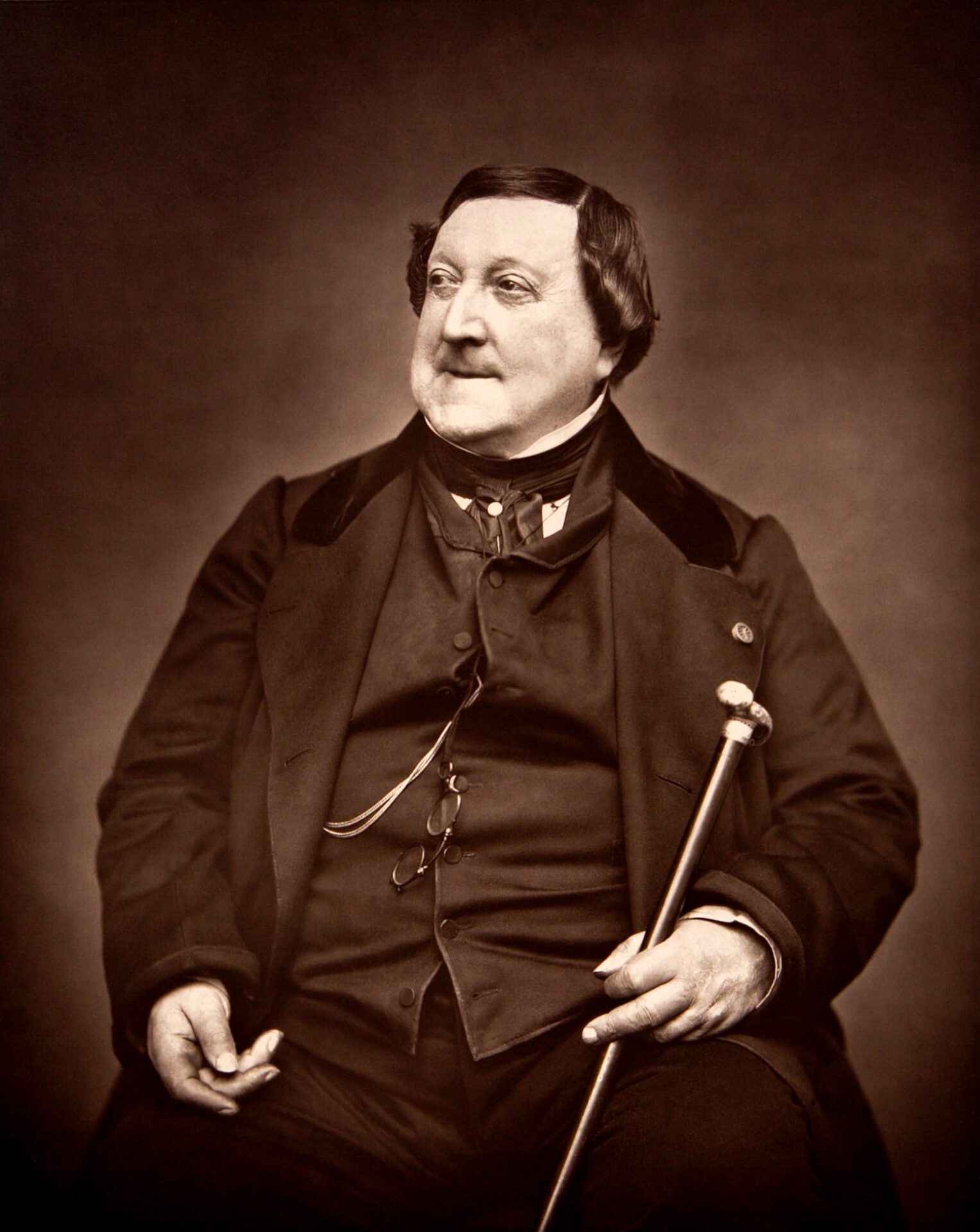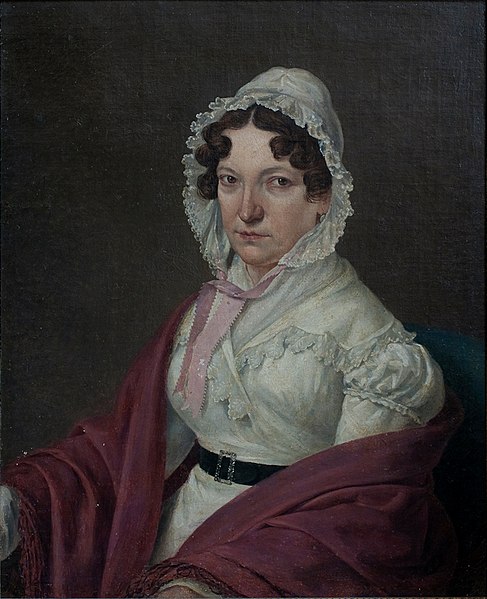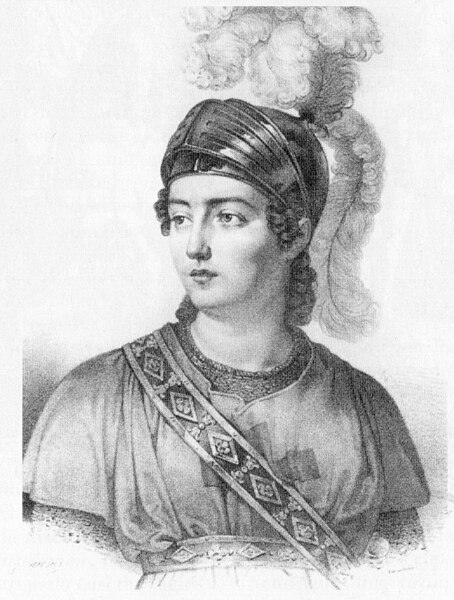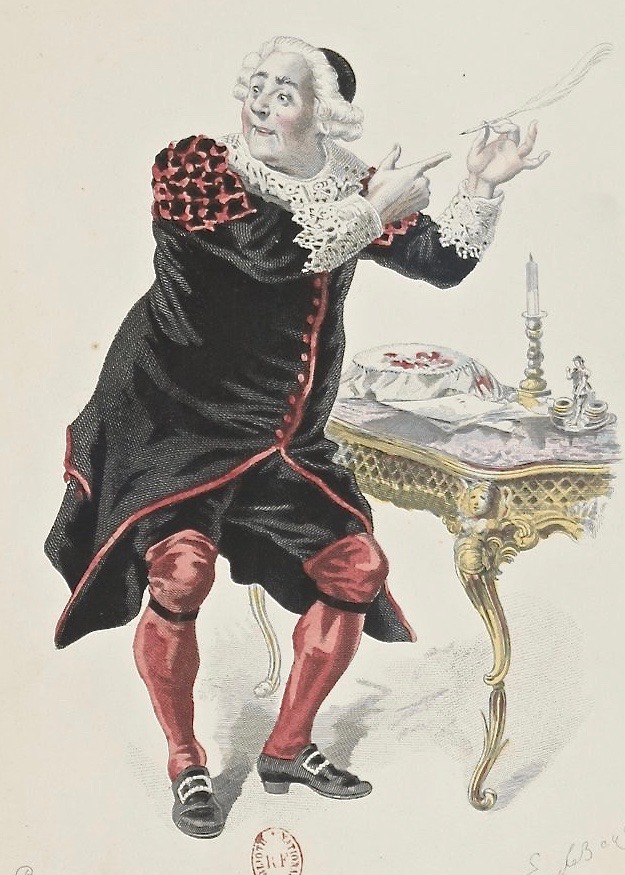By Larry Hancock
Less than three months after Mozart died, Gioachino Rossini was born in Pesaro, a small port town on the eastern coast of Italy, south of Ravenna. Rossini’s father, Giuseppe, who played French horn and trumpet, arrived in Pesaro from nearby Lugo in 1790, lodged with the Guidarini family, and found work in the local opera orchestra. Within a year, he married Anna Guidarini, and little Rossini, who was to be their only child, was born on leap day, February 29, 1792.
Rossini’s childhood must be seen against the backdrop of the Napoleonic invasion of Italy. That long war reduced many to penury, and like others, the Rossini’s were forced to travel from town to town, seeking work. Having a lovely natural voice, Anna Rossini became a performer of small opera roles in minor companies of central Italy, traveling with her husband who played in the orchestras where she sang. A daughter of a baker, Anna Rossini

Gioachino Rossini, 1865
had received no musical training, but she was successful in learning her roles because of a prodigious memory. She also had the advantage of eye-catching beauty, but she was born into a continent at war, which limited her opportunities.
When it was clear that Napoleon’s forces would soon reach the papal states, Rossini’s father, Giuseppe, known as Vivazza for his highly excitable personality, reacted actively against the Church of Rome’s indifferent government of Pesaro. Even before Napoleon’s forces invaded the Papal States, Vivazza was part of a movement seeking political reform, having joined a band of citizens who drove the Pope’s army out of Pesaro along with the papal governor.
When the Pope’s forces returned Vivazza was jailed, but the whole town of Pesaro including the local ecclesiastical authorities, welcomed the French when they finally did arrive. Following Napoleon’s victory at Marengo, Giuseppe was released only to be imprisoned again when the French left Italy entirely. While her husband was imprisoned, Anna was the sole support for herself and her young son. Unfortunately, her untrained voice did not last, and though still young she was forced to retire from the stage.
That young son, Gioachino Rossini, showed early promise. When he was only six years old, he was made a member (mascot, in all likelihood) of a military band formed by French troops in Pesaro. His name appears in the troop’s expense accounts; he was hired to play the triangle. Later he would become a serious financial help to his parents by singing in churches in Bologna where the family moved to improve their work opportunities. Rossini had a strong and beautiful soprano voice, and he developed a reputation in Bologna as an excellent young musician. At age fourteen, in 1806, he began study, tuition exempt, at Bologna’s prestigious Liceo Musicale, and he was invited to join the famous Accademia Filarmonica that same year. Mozart had been similarly honored thirty-six years before by the same organization when he, too, was fourteen.

Anna Rossini, Mother of Rossini, circa. 1820
It appears that Rossini inherited his mother’s phenomenal memory for music and her lovely voice along with his father’s genial and vivacious nature. He was popular in Bologna and remained popular with his peers for the rest of his life, though he could not count Italy’s music critics or composition teachers among his friends until he came to dominate all the opera stages of Europe.
The Italian operatic establishment did not accept the operas of Mozart, which they found too harmonically complex and heavily orchestrated. Since the 1720s, the days of Scarlatti and Metastasio (composer and librettist, respectively), Italian serious opera had depended a great deal on an elevated quality of language, and delivering that noble poetry with perfect clarity was among the chief responsibilities of a composer; transparent and light orchestral accompaniment was required. In addition, singers were expected to improvise extended passages during arias, which means that supporting harmonies could never be surprising. If they were, the singer could easily
mistake the direction of the harmonic progression and end up in the wrong key. This was especially dangerous in Italy where even new operas received little rehearsal before opening and singers were not given a piano/vocal score; they were given only their own notes.
For good or ill, Mozart was a principal influence on Rossini. While a student in Bologna Rossini discovered string quartets by Mozart and Haydn, which he studied, orchestrated, and adored. His love for Mozart would follow him all his life, and many, many years later he would describe Mozart as the inspiration of his youth, the challenge of his maturity, and the consolation of his old age. Mozart’s rich harmonies and bold orchestral statements inspired Rossini in his own compositions; to the point that he was nicknamed the little German at the Liceo. This influence from beyond the Alps would eventually cause more than a little upset among the teachers and composers of the previous generation.
Due to financial need and sudden opportunity, Rossini did not complete his course of study in Bologna. With one year of study yet to go, he received a commission to compose a one-act farce for the Teatro San Moisè in Venice. La cambiale di matrimonio (The Marriage Contract), a libretto by Gaetano Rossi was handed to the 18-year-old composer who completed setting the text in only a few days. Satisfied, the impresario put the opera into rehearsal. Though the cast complained of the dense orchestration and difficult harmonies, and warned the young composer that he would have a fiasco at his first premiere, the opposite occurred and Rossini soon had commissions in Venice, Bologna, and even Milan. Overtures, duets and other ensembles that Rossini composed in these early years remain brilliantly fresh today, and he inserted many of them with little reworking into his later operas; Rossini was always composing at a furious pace, as he was paid so very little for his work and had to support his family.
It is hard for us to comprehend the Italian practice of opera composition in the early 19th century, when a composer could be given less than a month in which to compose an entirely new opera. It is also surprising that starring singers in the world-premiere cast were paid more than twice the composer’s fee. Until Beethoven, Verdi, and Wagner, composers were not looked upon as we regard them today: as artists. Composers were seen as craftsmen who had no rights at all regarding choice of libretto or cast, had to turn in their work in very short order, didn’t own their work, and had no copyright protection. Rossini was a model composer for this period, as he was young, desperate to support his family, and was able to turn out exceedingly popular operas in a matter of only a few weeks. In fact, he was so good at his craft that he soon became the most sought-after composer in Italy, and within five years, he eclipsed Beethoven in fame while Beethoven yet lived.
Between November 1810 and December 1813, Rossini composed no fewer than 12 operas. Even when one considers that many of these were one-act farces, this is a formidable body of work, and Rossini was not yet twenty-one years old. It should also be noted that the last two, Tancredi and L’italiana in Algeri, launched him into real fame.
Domenico Barbaja, the most successful opera impresario in the world, made his home in Naples, and eventually controlled two theatres in Milan (one of them La Scala), three theatres in Naples (one of them, the San Carlo, was the largest opera house in Europe) and two theatres in Vienna. In the spring of 1815, the twenty-three-year-old Rossini arrived in Naples at Barbaja’s invitation. He was given charge of two of the theatres in Naples, the enormous San Carlo and the Fondo. He was paid an excellent annual income for finding and producing money-making operas throughout the season for both theatres and for composing one new opera for each theatre annually.

The soprano Giuditta Pasta as Tancredi, 1822
In Naples he would make formal acquaintance with Isabella Colbran, a dramatic-coloratura soprano who was one of the greatest singers of the age. She is said to have been be the mistress of Barbaja, but was the woman Rossini would later marry. His first work for the San Carlo was Elisabetta, regina d’Inghilterra (Elizabeth, queen of England). The title role was composed for the commanding Colbran. Though composers who then dominated Neapolitan stages were shaking their heads in disapproval of Rossini’s music, and composition students in the royal conservatory were forbidden even to see Rossini’s scores, the Neapolitans, including their king and queen, received the new opera with wholehearted enthusiasm, and the king soon overruled the ban on Rossini’s scores at the royal conservatory.
Rossini’s agreement with Barbaja allowed him to compose for other theatres, and in less than a year Rossini was in Rome at Teatro Valle for the premiere of the dismal Torvaldo e Dorliska; it is said that no composer could have overcome that impossibly inane libretto. But more significant than the fiasco was that eleven days before its unfortunate premiere the impresario of Teatro di Torre Argentina commissioned Rossini for another opera scheduled to premiere just seven weeks later. It would prove to be the most popular of all operas for the next fifty years. This twenty-four-year-old composer was about to compose The Barber of Seville.
A French playwright, Pierre-Augustin Caron de Beaumarchais, wrote three plays that we call the Figaro trilogy, The Barber of Seville (1775) was the first of these. The other two are The Marriage of Figaro and The Culpable Mother. The characters Figaro, Count Almaviva, and Rosina, who becomes the count’s wife, are in all three plays.
Rossini was not the first to reconceive The Barber of Seville as an opera. That clever man was Giovanni Paisiello. By the time Rossini was given the assignment to compose a new Barber, Paisiello had retired and had become all but a patron saint in Rome. That an upstart kid from a fishing village would have the audacity to reset this treasured opera was an affront that would not go unchallenged. Of course, Rossini had nothing to say about the selection of his assigned libretto, and Paisiello’s supporters had to have known that, still, the first performance went all but entirely unheard. The audience made such a cacophony of shouts, whistles, and catcalls that they drowned out both singers and orchestra. After the performance, which he was required to conduct, Rossini fled the theatre through a back way, and on the second night he called in sick.

Bartholo Le barbier de Séville Beaumarchais, Émile Bayard, 1876
The Paisiello cabal did not attend the second performance, or if they did, they kept quiet; the opera was finally heard and recognized to be of the finest of its kind. When the curtain rang down on that second performance, the audience marched to Rossini’s hotel to give him a torchlight parade, a Roman triumph. Rossini, believing that they were coming to lynch him, hid quaking in the stable while the impatient crowd broke the hotel windows in annoyance.
The Barber of Seville went on to become amazingly popular, and was the first opera to be sung in Italian in the United States. A few years after the Rome premiere Rossini left Italy. His first assignments were in Vienna where he met Beethoven who admonished him to “give us more Barbers!” Many years later, after Rossini retired due to serious health problems and his works began to pass into obscurity, only The Barber of Seville weathered all storms. It has been continually performed to the present day, and for many years it was hailed as the finest opera buffa of them all. Today, The Barber must share that status with Don Pasquale and Falstaff, all three of which share Rossini’s keen social insight, his musical vivacity, and his wit, though it must be admitted that Rossini’s natural charm glitters more brightly.